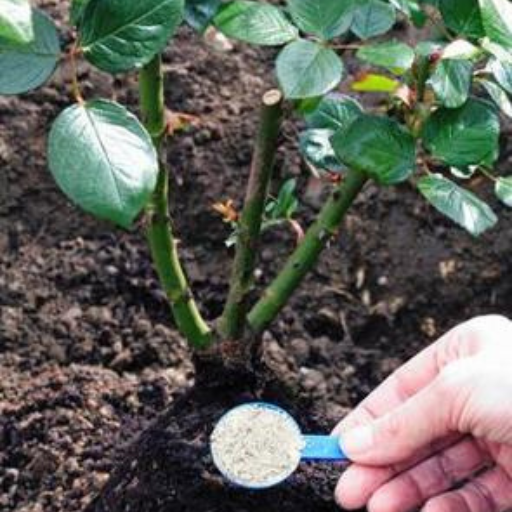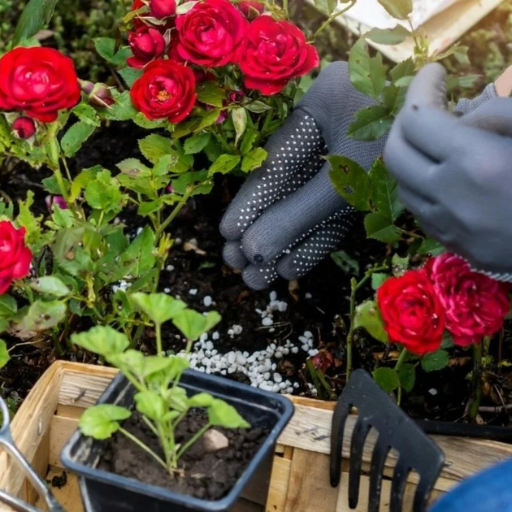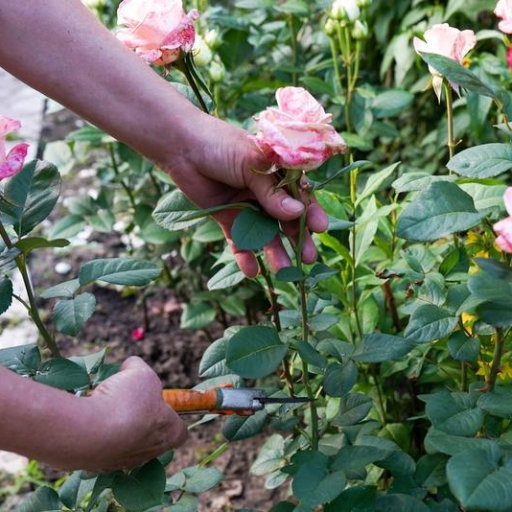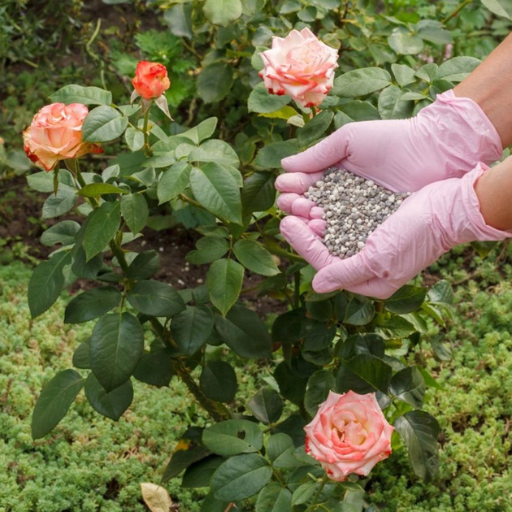Cultivating beautiful, vibrant roses requires more than just planting and watering. The secret to achieving lush blooms lies in the type of fertilizer you use. This blog delves into the world of organic rose fertilizers, guiding you on how to select the best products to nourish your roses naturally. By understanding the benefits of organic fertilizers, you’ll be able to foster healthier plants that produce stunning blooms. From essential nutrients to application techniques, this comprehensive guide is designed to help both novice and experienced gardeners maximize their roses’ potential. Let’s embark on a journey to enhance your rose garden with eco-friendly solutions that promote sustainable gardening.
What Makes a Great Organic Rose Fertilizer?

Understanding the Nutrients that Roses Need
Roses need a well-balanced mix of essential nutrients to thrive and produce healthy flowers. Nitrogen (N) supports good leaf and stem growth, Phosphorus (P) is vital for root development and flower production while Potassium (K) aids general plant health and resistance against diseases. Also, roses benefit from secondary nutrients such as Calcium (Ca), Magnesium (Mg), Sulfur (S), trace elements like Iron(Fe), Manganese(Mn) and Zinc(Zn). In this regard, an effective organic rose fertilizer provides these nutrients in a natural slow-release form so that your roses will continue receiving nourishment over time.
Different Types of Organic Fertilizers
Popular types of organic fertilizers available for you to choose from when considering fertilizing your roses include:
- Compost: compost is versatile, nutrient-rich product made up of decomposed organic matter which helps in enhancing soil structure and water retention while providing a balanced range of nutritional profile.
- Manure: Well-composted manure such as cow or horse manure adds essential nutrients to the soil making it more fertile. Ensure it is well-aged to avoid burning the plants.
- Bone Meal: Bone meal is a slow-release fertilizer that has high levels of phosphorous which is very important in promoting robust root growth and prolific blooming. It also contains calcium which strengthens cell walls.
Each one contributes different essential nutrients necessary for the overall health and vibrancy of your rose plants thereby propagating sustainable and eco-friendly gardening practices.
How to Choose the Best Fertilizer for Your Rose Garden
There are several key things to consider when choosing the best fertilizer for your rose garden:
- Soil Test: Begin by conducting a soil test to determine pH balance & nutrient capacity. This will help you understand what your soil needs specifically to ensure balanced nutrition for your roses. Nutrient content: Look for a fertilizer with a balance of the three primary nutrients; Nitrogen (N), Phosphorus(P) and Potassium(K). An N-P-K ratio of approximately 5-10-5 is ideal for most roses. It helps in strong root growth, good bloom set and improves overall plant health.
- Type of Fertilizer: Take into account different types of organic fertilizers such as compost, manure and bone meal, all come with their own benefits. Compost enhances soil structure and water retention, well-composted manure enriches the soil with essential nutrients, while bone meal supplies phosphorous that encourages root development and blooming.
- Slow-Release vs. Quick-Release: Choose between slow-release and quick-release fertilizers based on your gardening goals. Slow-release fertilizers provide a steady supply of nutrients for a long period thereby reducing the need for frequent reapplication as well as preventing leaching of essential nutrients. Quick release fertilizers provide an instant boost by making nutrients available immediately to plants needing them urgently.
- Seasonal needs: Select your fertilizer depending on what stage your crops are at during the season. During spring use a fertilizer with high nitrogen content to promote vigorous growth, for blooming switch to one having more phosphorous which promotes flowering.
By thoughtfully examining these factors you will be able to choose an efficient environmentally friendly fertilizer that will keep your roses thriving like never before.
How to Fertilize Roses for Optimal Growth?
When to Fertilize Roses: Timing is Everything
Timing is central in guaranteeing the maximum benefits your roses will derive from fertilization. The first fertilizer application should be done in early spring just when new growth starts. This prepares the way for strong development. Follow it up with a second one after the first cycle of blooming to encourage continuous flowering. A third one around mid or late summer maintains the plant’s health and supports blooms that occur during the last part of the season. It is important to avoid applying these fertilizers towards fall because it can cause new growth that may be affected by frosts later on. Water well before and after using fertilizers so that you do not burn their roots.
Step-by-Step Guide to Fertilizing Roses
- Prepare Your Garden Tools and Supplies: Get your preferred choice of fertilizer, watering can or hosepipe and gardening gloves at this stage. Make sure you have read instructions on your packet of fertilizer.
- Measure the Right Amount of Fertilizer: Always use recommended quantity as shown in package label of your fertilizer since excessive amounts are dangerous for rose plants.
- Apply Fertilizer at the Base of the Plant: Sprinkle all over near to each bush’s root area, avoiding direct contact with leaves or stem.
- Water the Roses: Before and after spreading manure, water them well so that it melts down faster thus letting nutrients reach below soil level more easily.
- Mulch to Retain Moisture: Add a cover once you have finished putting manure around your plants and this will help keep soil moist for a longer time while also retaining nutrient content within flowers’ grounds.
- Monitor Plant Health: Ensure you evaluate regularly if your roses lack any nutrients or else possess them in excess. Change how often you use such manures based upon whether they are growing healthily or not.
- Repeat as Necessary: Depending on what type was employed and which months this is done, there might be need for reapplication every 4-6 weeks. Over-fertilizing must always be avoided, follow the manufacture’s recommendation.
By following these steps, you can ensure your roses receive the nutrients they need for optimal growth and beautiful blooms.
Common Mistakes to Avoid When Fertilizing
- Over-Fertilizing: Applying too much fertilizer is a common mistake that can cause nutrient burn or harm to roses. To avoid this, always use the recommended dosage on product label.
- Wrong Timing: Inappropriate timing of fertilization in a year may stress plants out. Do not apply it late in the growing season because it induces fresh growth which may not make it through winter.
- Using the Wrong Type of Fertilizer: All fertilizers are not meant for roses. The result of using generalized plant food instead of specialized rose manure is none other than unbalanced nutrient intake patterns. Make sure that you select appropriate plant food specifically tailored to meet the needs of your rose bushes.
Are Organic Fertilizers Better for Rose Bushes?

Reasons why one should use Organic Fertilizers
There are many ways in which using organic fertilizers on your rose garden can be beneficial to both the plants and their environment around them. Firstly, they develop the overall structure of soil through an increase in microbial activity thereby enhancing aeration and drainage among other critical things. Healthier roots are developed as well as stronger plants. Secondly, they release nutrients into soil slowly thereby ensuring constant supply of vital elements without risks of nutrient burn that may occur when using chemical fertilizers. Moreover, they have trace elements absent in chemical alternatives that tend to make your roses more vibrant. Also, utilizing organic products such as these supports sustainable horticulture methods that minimize damage done to our surroundings by reducing pollution from gardens while increasing biodiversity there too. Additionally, organic fertilizers help hold water by the soil for optimal growth of rose bushes. Finally, going for organic fertilizers is a move that initiates development energy for an eco-friendly garden.
Comparison between Organic and Inorganic Fertilizers
When comparing organic and inorganic fertilizers it is necessary to take into account several important aspects. The nutrients from compost, manure or bone meal used as organic fertilizer break down slowly and thus improve soil health over time. Consequently, this helps to improve its porosity as well as stimulate microorganisms’ activities within it which results into better root systems with their subsequent robustness. These on the other hand are synthetically manufactured plant foods often refereed to as chemical or inorganic ones made available immediately after application hence causing rapid effects first before any long term improvement can occur. On the contrary if they are misused then it could result in nutrient imbalances, environmental degradation or even spoilage conditions of soils according to Virginia Cooperative Extension. However, despite these differences some benefits such as immediate impact offered by non-organic types do not outweigh long-term fertility and sustainability advantages found within natural counterparts leading to their recognition as the most environmentally friendly choice. In conclusion, organic fertilizers are generally better for roses’ overall well-being and the environment, although inorganic fertilizers can be useful for quick nutrient supplementation.
Testimonials from Rose Society Gardeners
Jane Whitaker, New Orleans Rose Society:
“I have been using organic fertilizers for the last five years and I must say the difference is amazing. The soil has improved significantly with increased richness and fertility. My blooms have become brighter and less affected by pests and diseases. Steady growth is ensured thanks to a gradual release of nutrients into soil; at the same time, I am glad that this contributes to a healthier environment.”
Thomas Green, Pacific Rose Society:
“Inorganic fertilizers gave me some quick results but eventually my soils were getting worse apart from deteriorating over yielding quality. This was why I began using organic ones. It was an easy transition with visible long-term benefits. My rose bushes are thriving with deeper roots systems and overall greater health state of being. The natural approach helped to make my garden more resistant in case of adverse situations.”
Emily Saunders, Midwest Rose Growers Association:
“After experiencing some issues with synthetic fertilizers, I decided to try organic options based on recommendations from fellow gardeners. Within a season it showed big improvements though my roses became more lush than ever before while the soil literally comes alive again. Organic fertilizers have proven to be a sustainable and effective choice for my garden.”
What are the Best Types of Organic Fertilizers for Roses?

Alfalfa Meal: The Gardener’s Love
Among rose gardeners, alfalfa meal is well-considered for being able to deliver essential nutrients while improving the soil structure. Alfalfa meal is high in nitrogen, phosphorus and potassium that promote robust growth and blooming. It also contains triacontanol (a natural root hormone) which increases overall plant vigor. Additionally, alfalfa meal provides trace elements such as magnesium and sulfur – essential for healthier and more vibrant roses. Furthermore it feeds the plants and supports beneficial microbial activity within the soil resulting in a more balanced fertile garden ecosystem.
Compost And Manure: What To Do With Your Roses Naturally
When it comes to enriching soil and providing essential nutrients to roses, compost and manure are exceptional selections. Compost is made up of decomposed organic material, which serves as a slow-release fertilizer improving water-holding capacity of the soil and supporting rich microbial life. It has all important nutrients including nitrogen, phosphorus, potassium essential for healthy development of roses.
The latter on the contrary is an age-old gardening secret known by every farmer around. Both cow dung as well as horse manure are frequently used although they must be old enough so that they do not burn the plants upon application. Manure is rich in organic matter supplying vital plant ingredients thereby promoting vigorous growth along with enhanced blooming performance . Also its high content of organics enhances substantially fertility levels of soils through improvement of useful bacterial organisms hence leading to a highly productive garden.
Using both compost plus manure can lead to a more sustainable rose garden that will be not only well-fed but also less liable to diseases.
Liquid Fish Fertilizer: Good Side/Downside
Liquid fish fertilizer is sought-after among farmers because it contains plenty minerals necessary for plants’ nutrition being at the same time eco-friendly.However there are some cons related thereto.
Pros:
- Nutrient-Dense: The liquid fish fertilizer is enriched in such vital elements of plant growth as nitrogen, phosphorous and potassium.
- Enhances Soil Health: it improves soil structure and promotes the development of beneficial microorganisms resulting in a healthier garden environment.
- Organic And Sustainable: since it is made from purely natural ingredients it can be used by people who support organic gardening.
- Fast-Acting: Liquid fish fertilizers can be taken up by plants very quickly thus providing almost instant nutrients.
Cons:
- Odor: One of its main setbacks is that it has an awful smell which can be annoying and persists within the garden for sometime.
- Applying Periods: It requires more frequently applying than some other fertilizers, hence takes much time to put into practice.
- Cost: When compared with synthetic or other organic types like compost or manure, liquid fish fertilizer may cost a little bit more.
- Animal Attraction: A fishy scent might draw unwelcome wildlife including raccoons, dogs and cats causing problems in the garden
By considering these pros and cons about the use of liquid fish fertilizer you will know if it’s something that will best work for your rose garden.
How to Improve Soil for Healthy Rose Blooms?

Determination of Nutrient Needs through Soil Testing
Carrying out a soil test is one most important procedures to decide on nutrient needs for my rose garden. To start with, I gather soil samples from various parts of the garden by digging down about six inches to get an average specimen. Thereafter, I mix these samples together and use a soil testing kit following the given directions in order to take measurements for pH as well as nutrient levels Test results will show whether or not nitrogen, phosphorus and potassium nutrients are lacking from the soil and will enable me decide on the type and amount of fertilizer that is appropriate to add. With this knowledge of what my land is like, I can manage my fertilization and amendments so as to make healthy, vibrant rose blooms.
The Use of Mulch and Organic Matter for Soil Enrichment
Using mulch and organic matter to improve soil quality makes sense for my rose garden. For example, applying 2-3 inch layer of organic mulch such as shredded bark, compost or straw maintains moisture within the ground while at the same time suppressing weeds besides moderating soil temperature. After some time has passed, this mulch decomposes adding valuable organic material into the earth. This organic matter promotes better structure of soils hence improving microbial activity and increasing availability nutrients. Also including compost directly into the planting beds or applying it as a top dressing throughout growing season further boosts fertility in soils leading to vigorous growth in roses. If I regularly incorporate these natural additions then I can create an environment that supports healthy vibrant roses.
Adjusting Soil pH Levels for Maximum Nutrient Uptake
Firstly before adjusting soil pH levels which would lead to maximum nutrient uptake; I must conduct soil test determine its current pH levels. For optimal nutrient intake roses’ ideal pH ranges between 6-0-and 6.5. In case it is too acidic (below 6.0), some agricultural lime or wood ash can be used to increase the pH. In contrast, if the soils are too alkaline (above 7.0), elemental sulfur or aluminum sulfate can be added in order to lower it. These amendments should be applied slowly and soil retested periodically so as not to over correct the situation. By carefully adjusting and maintaining the pH within this range ensure that my roses get all the nutrients they require for growth and blooming again.
Frequently Asked Questions (FAQs)

Q: Is it possible to use chicken manure as a rose fertilizer?
A: Absolutely! Chicken manure is a great organic fertilizer for roses, being high in nitrogen and other essential nutrients. However, it should be well composted to avoid burning the plants.
Q: What types of roses benefit most from organic fertilizers?
A: Almost all kinds of roses including hybrid teas, floribundas, grandifloras and climbing roses are benefited by organic fertilizers. Organic alternatives such as fish emulsion and worm castings facilitate the plants’ overall health and growth.
Q: How do I apply granular fertilizers to my roses?
A: For granular fertilizers, spread the recommended amount evenly around the plant taking care not to touch it with your hands. After applying them ensure you water thoroughly so that they could penetrate into soil easily.
Q: Are liquid fertilizers effective for roses grown in containers?
A: Yes, liquid fertilizers work wonders for potted roses. They allow efficient absorption of nutrients by the plants which in turn helps maintain flower production and healthy foliage.
Q: How do I address stunted growth in my roses?
A: Stunted growth of rosebushes can result from dearth of vital minerals; hence application of organic NPK fertilizer containing balanced minerals will help rejuvenate them. Also pruning out any dead or diseased wood may cause bloom development.
Q: Is it beneficial to use alfalfa for rose fertilization?
A: Yes! Alfalfa meal or pellets work well on roses because alfalfa contains a good hormone that promotes flourishing in those flowers. It can be dug into the soil surrounding the plant or soaked into water to make a tea that is beneficial for your own roses.






